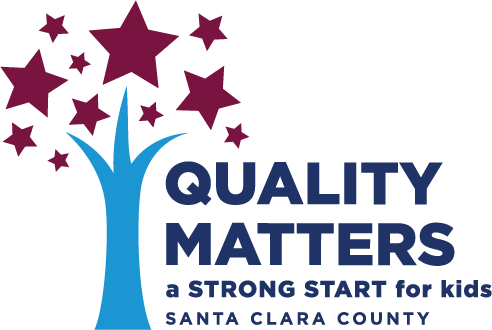Why QUALITY MATTERS?
High-quality early care and education programs that meet the needs of all students, including dual language learners and children with special needs, are greatly needed in Santa Clara County, where 32% of incoming Kindergartners are dual language learners, 36% are socioeconomically disadvantaged, and 6% have a diagnosed disability. Studies on the effects of early childhood education have found that children who participate in high-quality early childhood education programs:
Are more likely to start Kindergarten ready to learn.
Exhibit more significant improvement in early language, literacy, and math development.
Have higher earnings and are less likely to use drugs and engage in other criminal activity in adulthood.
Our efforts are accomplished through a collaborative effort between FIRST 5 Santa Clara County and the Santa Clara County Office of Education and are funded by First 5 California, the California Department of Education, the California Department of Social Services, local city and county governments, and foundations.
Children who experience quality early education demonstrate greater cognitive, linguistic, and socio-emotional growth, leading to better attentiveness, persistence, impulse control, and sociability.
To ensure quality outcomes, programs must meet national benchmarks that promote well-educated and well-compensated teachers and caregivers.
Infants and toddlers develop critical competencies such as self-regulation, problem-solving, and communication through responsive interactions with skilled educators.
Early experiences (both positive and averse) affect connections within a child’s brain architecture, strengthening or weakening the foundation for all future learning, behavior, and health.
In an increasingly global economy, promoting dual language acquisition through a multilingual workforce gives children a linguistic and cognitive advantage.

